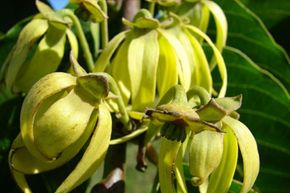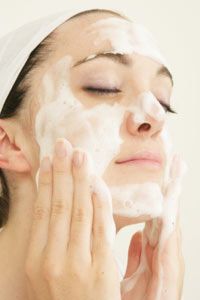Face it: No matter your skin type, you deal with certain challenges. Oily skin accumulates dirt and bacteria quickly and, as a result, is much more likely to suffer breakouts. People with oily skin may struggle to keep their faces from having a shiny appearance, and their pores may seem larger than average. On the other hand, people with dry skin do not produce enough oil to keep their skin from looking dull or wrinkled. Some alternative medicine practitioners and cosmetic companies claim that one ingredient will work in products for each skin type: ylang-ylang.
Ylang-ylang oil is extracted from blossoms of the Cananga odorata tree that is found in Indonesia, the Philippines and surrounding areas [source: Manner and Elevitch]. It has a sweet, floral fragrance and is used mainly as a fragrance in perfumes, cleansers, aromatherapy products, massage oils and other cosmetics.
Advertisement
In addition to ylang-ylang's flowery fragrance, some people claim that the oil of this "flower of flowers" can even out the skin's oiliness. Skin naturally produces oil, known as sebum, to protect it and seal in its moisture. Oily skin produces too much sebum, whereas dry skin produces too little. Ylang-ylang essential oil, when used in skin care products, is said to balance out this sebum production. From cleansers and moisturizers to astringents and toners, there are skin care products being marketed to help your skin produce just the amount of oil it needs to stay healthy.
Little available scientific research has been found to back up these claims, but many studies out there have shown how ylang-ylang oil can negatively react with skin. When ylang-ylang oil is used in skin care products, it's usually present in small amounts. Even so, consumers should still be cautious because the oil contains allergens such as isoeugenol, and it has been known to lead to allergic contact dermatitis [source: Crawford]. And anyone who has sensitive skin or problems using products with fragrance should also steer clear of ylang-ylang oil.
Keep reading for even more information about how ylang-ylang oil is used in cosmetics and other products.
Advertisement


